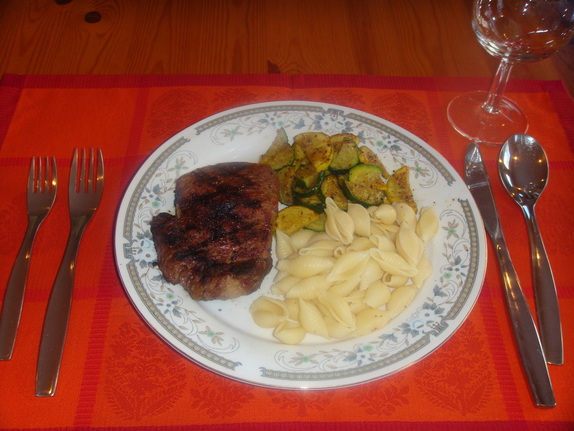According to the USDA, we should be consuming no more than 300 mg of cholesterol per day to reduce our risk of cardiovascular disease. The idea being that, in some people, high serum cholesterol is associated with heart disease, so reducing our dietary cholesterol may help to keep our blood cholesterol low. This hypothesis, overly abundant in the medical and nutrition communities, has much contradictory evidence.
This low cholesterol recommendation is also nearly impossible to comply with for the average carnivore. According to PhotoCalorie, just 6 ounces of steak or 1.5 eggs already exceeds your limit for the entire day.
The idea that dietary cholesterol increases blood cholesterol seems logical, however the evidence supporting this hypothesis is not strong. This has been known since as early as 1953. Dr. Ancel Keys was one of the first researchers to test this hypothesis, feeding subjects extremely high levels of dietary cholesterol and measuring their blood response. He found almost no effects, despite the absurd amounts of dietary cholesterol administered. Upon further research, Keys accepted that there is some relationship, and created a formula to predict it: blood cholesterol is proportional to the square root of the amount of dietary cholesterol added.
Change in serum cholesterol between 2 diets = 1.5*(Z2 – Z1), where Z is the square root of the cholesterol content of each diet in mg/1000 kcal
According to Keys’ equation above, if someone consuming a 2,000 calorie diet and 1200mg of cholesterol (4x the recommended level) per day reduced their total dietary cholesterol by 6-fold to 200 mg a day, their serum cholesterol would drop by 21.75 mg/dl. Going from 300 mg per 1000 calories eaten to 150 mg per 1000 calories eaten would drop serum cholesterol by a mere 3.75 mg. This is due to the liver's unique ability to sense dietary cholesterol, and modulate subsequent cholesterol production.
During the same time, other researchers believed there was a larger relationship. When they fed subjects cholesterol combined with egg yolk, their blood cholesterol increased. When they consumed much higher doses of pure cholesterol, the blood response was less pronounced. Possible explanations for this were increased bioavailability of the cholesterol when mixed with egg yolk, or the possibility that another ingredient besides the yolk’s cholesterol was increasing blood cholesterol levels. However, the amount of egg yolk required to make a significant difference is usually quite large.
Other researchers have since confirmed Ancel Keys’ square root relationship, adding that dietary cholesterol has greatest effects on serum cholesterol if it is added to a low cholesterol, or cholesterol-free diet. At moderate cholesterol intakes, serum cholesterol changed very little with added cholesterol. A 1997 meta-analysis compiled 9 predictive equations since 1990, calculating that for a 2500 kcal diet, a 1.37-2.68 mg/dl decrease in serum cholesterol could be expected for every 100 mg/day decrease in dietary cholesterol. The prediction based on their meta-analysis was a 2.2 mg/dl decrease in serum cholesterol for every 100 mg/day decrease in dietary cholesterol.
Encouraging the masses to eat a low cholesterol diet does not seem to have any significant effect on decreasing serum cholesterol levels. It also encourages low-protein diets, which are less effective for weight loss and satiety.
For more on this, and a list of sources, see our dietary cholesterol page in the related science section.
--
Tried a carb-restricted or paleo diet? Join the registry today!

 RSS Feed
RSS Feed
